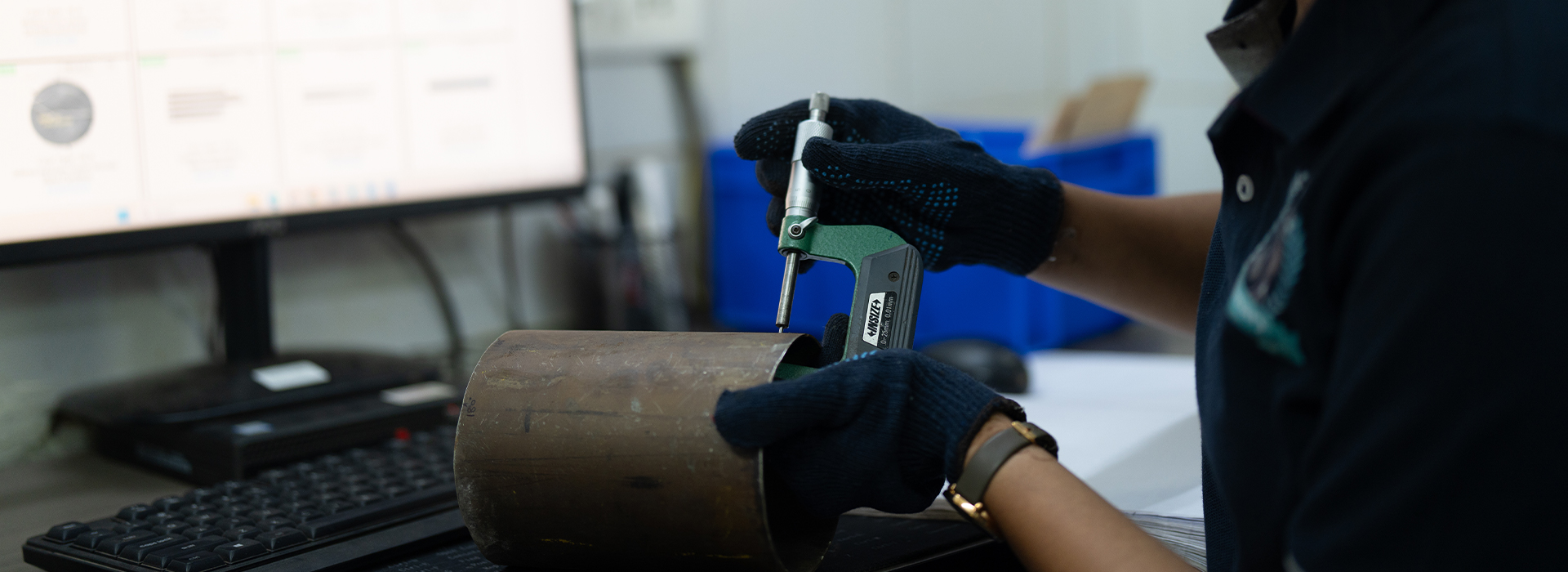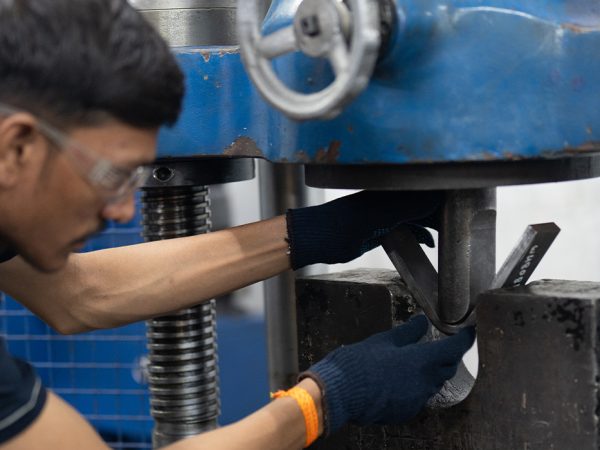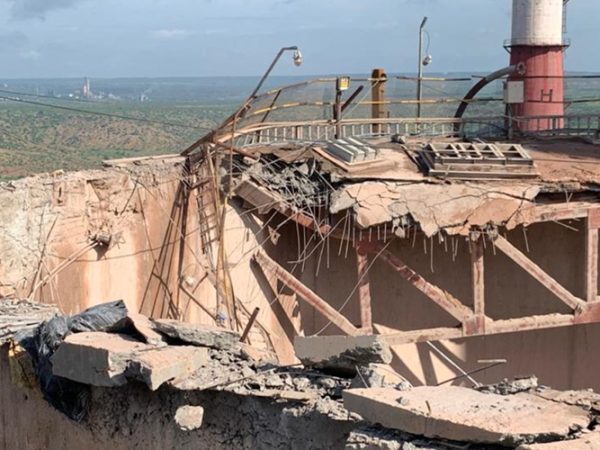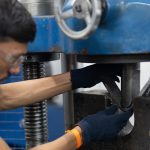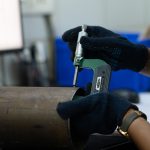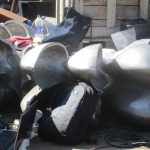In every power generation plant, boilers and steam turbines play a vital role in maintaining efficient and reliable operations. However, when boiler tube failures occur, they can cause costly downtime, reduced plant efficiency, and potential safety hazards. This is why Boilers Tube Failure Investigations are essential to identify, understand, and eliminate the root causes of these issues.
At TCR Engineering Pvt. Ltd., we specialize in providing complete Failure and Root Cause Analysis services for boiler tubes and steam turbine components. Our goal is to ensure long-term reliability, improved plant safety, and enhanced performance by identifying problems before they escalate.
Understanding Boiler Tube Failures
Boiler tubes are subjected to high temperatures, pressures, and fluctuating operational conditions. Over time, these extreme conditions can cause material degradation, corrosion, fatigue, or creep, leading to tube leaks or ruptures.
A Failure Investigation of these tubes helps determine not only what went wrong but also why it happened. By understanding the mechanism of failure, plant operators can implement effective corrective and preventive measures.
The Failure and Root Cause Analysis process ensures that each aspect—design, material, operation, and maintenance—is evaluated to pinpoint the true source of failure.

Why Boilers Tube Failure Investigations Matter
When a boiler tube fails, it affects the entire steam generation process. This can lead to shutdowns, financial loss, and even safety risks for personnel. Understanding the exact cause of failure through Failure Investigation and Root Cause Analysis allows industries to make informed decisions for maintenance and operational improvements.
A detailed Failure and Root Cause Analysis also helps in:
- Preventing similar failures in the future.
- Improving material selection and design.
- Reducing unscheduled downtime.
- Enhancing the overall reliability of the boiler and steam turbine system.
Types of Boiler Tube Failures
The most common reasons behind boiler tube failures include:
- Corrosion – Caused by impurities in feedwater or improper chemical treatment.
- Overheating – Due to poor water circulation, scale formation, or flame impingement.
- Erosion – Resulting from high-velocity steam or particulate matter.
- Fatigue Cracking – Arising from cyclic thermal stresses during operation.
- Creep Damage – Long-term exposure to high temperatures leading to material deformation.
- Hydrogen Damage or Embrittlement – Caused by reaction between hydrogen and metal.
Process of Boilers Tube Failure Investigations
At TCR Engineering Pvt. Ltd., we follow a scientific and well-structured approach to Boilers Tube Failure Investigations. Our method combines advanced testing, metallurgical evaluation, and engineering expertise to identify both the immediate and root causes of failure.
Step 1: Data Collection and Visual Examination
The first stage involves gathering operational data, maintenance records, and visual inspection of the failed component. Our team examines the fracture surface, discoloration, deformation, and corrosion patterns to develop an initial hypothesis.
Step 2: Sample Preparation and Cleaning
Samples of the failed tube are carefully sectioned and cleaned using standard procedures. This ensures that the evidence remains intact for accurate Failure Analysis.
Step 3: Non-Destructive Testing (NDT)
We perform NDT methods such as ultrasonic testing, radiography, magnetic particle testing, and dye penetrant inspection. These techniques help identify cracks, wall thinning, and internal defects without damaging the sample.
Step 4: Metallurgical and Chemical Analysis
Our experts conduct detailed Failure and Root Cause Analysis using microscopic and chemical examination.
- Optical Microscopy and Scanning Electron Microscopy (SEM) reveal microstructural changes.
- Energy Dispersive Spectroscopy (EDS) determines elemental composition.
- Spectrochemical Analysis detects alloying elements and impurities.
Step 5: Mechanical Testing
Mechanical tests such as tensile strength, hardness, and impact testing are conducted to compare the results with standard material specifications. These help confirm if the failure was related to mechanical degradation or operational overstress.
Step 6: Corrosion and Deposit Analysis
We analyze corrosion scales, deposits, or oxide layers to determine their composition and origin. This gives insights into water quality issues, combustion gas reactions, or contamination problems.
Step 7: Root Cause Determination
After integrating all test results, our engineers perform a detailed Root Cause Analysis. This identifies the true reason behind the failure — whether it was due to design, material selection, operation, or maintenance issues.
Step 8: Recommendations and Reporting
The final stage involves preparing a comprehensive report outlining:
- Observations and findings.
- Root cause and contributing factors.
- Corrective and preventive recommendations.
- Maintenance and inspection guidelines.
Our reports are designed to be clear, actionable, and industry-compliant, ensuring easy implementation by the client’s team.
Failure and Root Cause Analysis in Steam Turbine Systems
In addition to boiler tubes, Failure investigation of steam turbine components is equally critical. Steam turbines operate under high-speed and high-pressure conditions, making them prone to blade erosion, stress corrosion cracking, and thermal fatigue.
TCR Engineering Pvt. Ltd. conducts detailed Failure and Root Cause Analysis for turbine parts including blades, rotors, casings, and shafts. Our investigations focus on identifying metallurgical issues, thermal stresses, and environmental factors that may lead to failures.
By combining our expertise in Failure Analysis and Root Cause Analysis, we help our clients ensure uninterrupted turbine performance, reduced maintenance costs, and enhanced life expectancy of components.
Advanced Tools and Techniques Used by TCR Engineering Pvt. Ltd.
We believe that accurate Failure Investigation requires advanced equipment and expert interpretation. Our in-house laboratory is equipped with world-class instruments and technology to deliver precise results.
Some of the key tools we use include:
- Scanning Electron Microscope (SEM) for micro-level failure analysis.
- EDS and XRF Spectrometers for elemental composition.
- Metallographic Microscopes for structural study.
- Ultrasonic and Radiographic Testing equipment for defect detection.
- Hardness Testers and Tensile Testing Machines for mechanical evaluation.
These technologies allow us to conduct complete Boilers Tube Failure Investigations with unmatched accuracy.
Common Findings in Boiler Tube Failure and Root Cause Analysis
Through years of experience, TCR Engineering Pvt. Ltd. has identified certain recurring causes behind boiler tube failures. These findings help industries plan better preventive measures.
- Corrosion Due to Improper Water Treatment – Presence of chlorides, sulfates, or oxygen can lead to pitting and stress corrosion cracking.
- Overheating Due to Scale Formation – Deposits on inner tube surfaces reduce heat transfer and cause localized temperature rise.
- Mechanical Stress and Vibration – Tubes subjected to cyclic stresses may develop fatigue cracks.
- Material Defects or Weld Failures – Improper fabrication or welding can create weak zones that fail prematurely.
- Design-Related Issues – Poor tube layout or unsupported sections can increase stress concentrations.
Each of these is thoroughly verified during our Failure and Root Cause Analysis to ensure complete accuracy in findings.
Preventive Actions After Failure and Root Cause Analysis
The true value of a Failure Analysis lies in the preventive actions taken afterward. TCR Engineering Pvt. Ltd. not only identifies what went wrong but also guides clients on how to prevent recurrence.
Our preventive recommendations include:
- Improving water treatment systems to reduce corrosion.
- Maintaining optimal combustion conditions to avoid flame impingement.
- Conducting periodic non-destructive testing (NDT) for early detection of flaws.
- Replacing worn-out or high-stress tubes with upgraded materials.
- Implementing design modifications to minimize thermal stress.
- Ensuring regular inspection and monitoring schedules.
With a proper Root Cause Analysis, industries can extend component life and enhance operational safety.
Failure Investigation of Steam Turbine – A Detailed Approach
When conducting a Failure investigation of steam turbine, our engineers follow a comprehensive approach that includes mechanical, metallurgical, and operational evaluation.
Our Process Includes:
- Visual Inspection and Documentation of failed components.
- Metallurgical Analysis of blade or rotor material.
- Vibration and Thermal Stress Analysis to determine operational causes.
- Surface Fractography to study crack initiation and propagation.
- Root Cause Analysis to identify mechanical, thermal, or environmental triggers.
Through our combined expertise in turbine and boiler systems, we provide end-to-end solutions that ensure reliable and safe plant performance.
Case Example: Boiler Tube Failure Investigation in a Power Plant
One of our recent Boilers Tube Failure Investigations involved a power plant where sudden tube leakage caused an unplanned shutdown. Our engineers collected samples, performed metallurgical and chemical analysis, and discovered that the root cause was chloride-induced corrosion due to improper water conditioning.
Based on our Failure and Root Cause Analysis, the client implemented improved feedwater treatment and periodic NDT inspections, significantly reducing future failure risks.
This real-world example highlights how a timely Failure Investigation can prevent costly breakdowns and improve reliability.
Why Choose TCR Engineering Pvt. Ltd.
For over four decades, TCR Engineering Pvt. Ltd. has been a trusted name in material testing, Failure Analysis, and Root Cause Analysis across industries. Our team of experienced metallurgists, mechanical engineers, and corrosion specialists provide scientifically backed insights that help industries improve safety, reliability, and performance.
Our Strengths:
- Over 50 years of experience in Failure Investigation and testing.
- NABL-accredited laboratories with world-class facilities.
- Expertise in Failure and Root Cause Analysis for boilers, turbines, and pressure equipment.
- Customized solutions tailored to client requirements.
- Fast turnaround and comprehensive reporting.
We take pride in supporting industries like power generation, petrochemical, fertilizer, and steel with reliable and result-oriented investigations.
Conclusion
Boilers Tube Failure Investigations are critical for maintaining the efficiency and reliability of any steam turbine operation. A small failure can escalate into major downtime and financial loss if not investigated properly.
With Failure and Root Cause Analysis, industries can uncover the true reasons behind equipment failure and prevent recurrence through proper corrective actions.
At TCR Engineering Pvt. Ltd., we combine decades of experience, advanced technology, and technical expertise to deliver complete Failure Analysis, Failure Investigation, and Root Cause Analysis solutions. Our mission is to help industries achieve safe, efficient, and sustainable operations.
When it comes to Failure investigation of steam turbine or boiler components, TCR Engineering Pvt. Ltd. remains your trusted partner for quality, precision, and reliability.
